Tobi Kyeremateng’s ‘ÓWÀMBÈ’ Is A Nostalgic Look into The Heart of Nigerian Party Culture [@tobikyere], [@NetflixUK], [@OlukogaSayo]
![Tobi Kyeremateng’s ‘ÓWÀMBÈ’ Is A Nostalgic Look into The Heart of Nigerian Party Culture [@tobikyere], [@NetflixUK], [@OlukogaSayo]](https://guap.co/wp-content/uploads/2022/03/cover.jpeg)
Netflix’s ‘OWAMBE’ Is A Nostalgic Look Into The Pinnacle of British Nigerian Culture
The self-professed giant of Africa, Nigeria has a reputation for being loud, proud, and unapologetic. Nowhere better is this expressed than in the hall party, a gathering where only the finest clothes are worn, the tastiest food served, and the sounds of Afro juju are heard into the early hours of the morning.
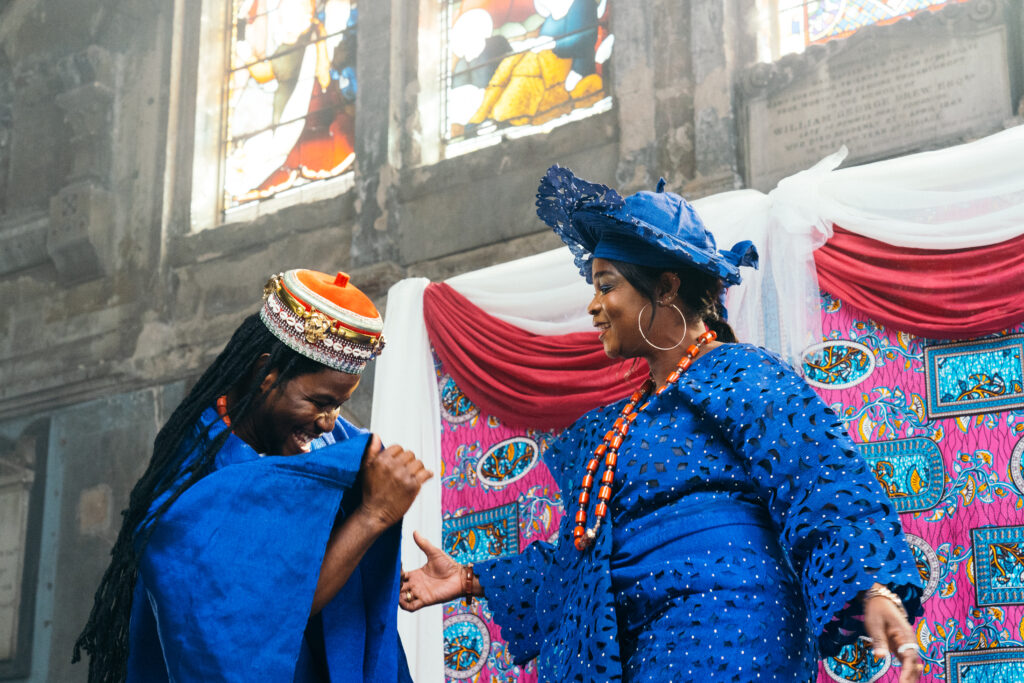
Known as ÓWÀMBÈ (colloquially translated to ‘the party is here), this tradition found its home in the UK when a generation settled down and started new lives in the West. “A lot of people moved here and only knew one or two people that came over before them; throwing parties was important for that generation to find a way to belong; it was their way of finding a community in a city they didn’t have a relationship with”, says Tobi Kyeremateng, director of the newly released docu-fiction film.
One of ten winners of the Netflix Documentary Talent Fund, ‘ÓWÀMBÈ’ is Tobi’s directorial debut, a project that stemmed from an essay she wrote for publication ‘Black Joy’. Penning an insider account of hall parties after speaking to her uncle ‘D Boss’, she explains that she wanted to explore this idea in another way.“I thought this could be something that could be a documentary- I’ve not seen many documentaries about hall party culture; it’s quite an underground thing. I applied on a whim and then ended up winning.”
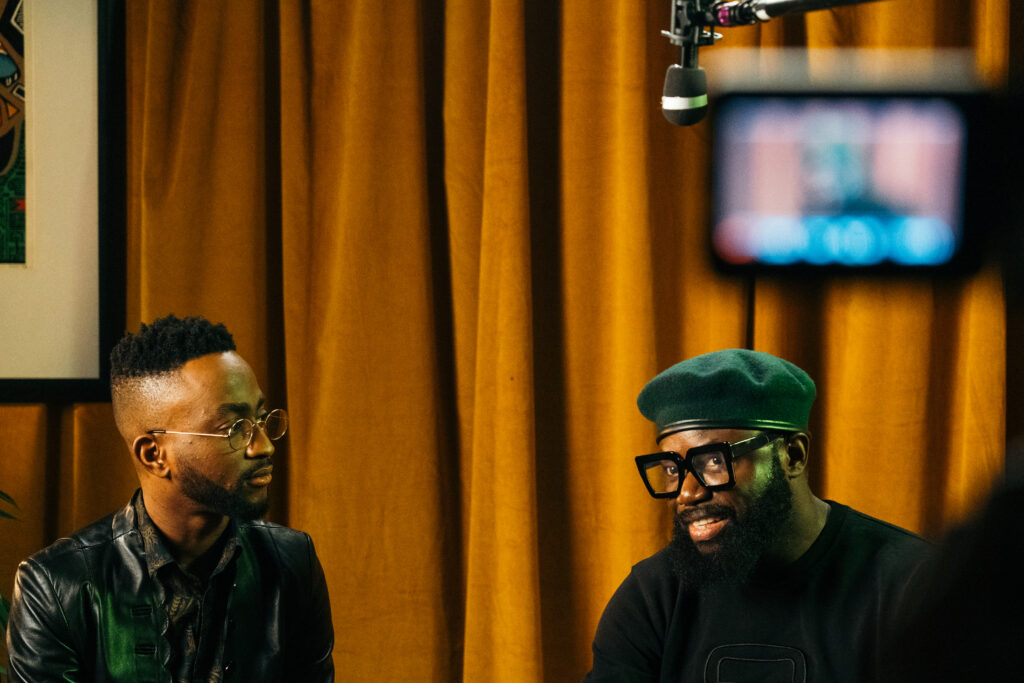
“It was really scary, but I learnt a lot about myself, my culture, my creative instincts, and I had the most amazing team that supported me through the process”, she adds. With mentoring and boot camp sessions from departments across Netflix, coupled with the support of archival producer Tania Nwachukwu, the film gives viewers an in-depth look into the heart of what we know as Nigerian hall party culture here in the UK.
Featuring tailors, live band artists and people from across different tribal groups and generations, this story chronicles the four key elements of owambe, told through the lens of the community: fashion, music, food, and the spaces. With no stock footage or archive database to look through, Tobi and Tania relied on their contributors to help them build from scratch.
“My uncle put me in touch with his cousin who had three videotapes that we used, and Beverley, who shared from the Ijaw perspective, gave us an hour-long video from someone’s wedding. Then there was Tania, who already had such a rich resource of photos from the blkintheday archive. Still, she also went round to everyone’s houses to scan all of the footage”. Tobi describes it as a “really beautiful process”, noting that “people would sit for hours looking at this footage, and their old pictures because they hadn’t seen it for maybe 10 or 20 years”.
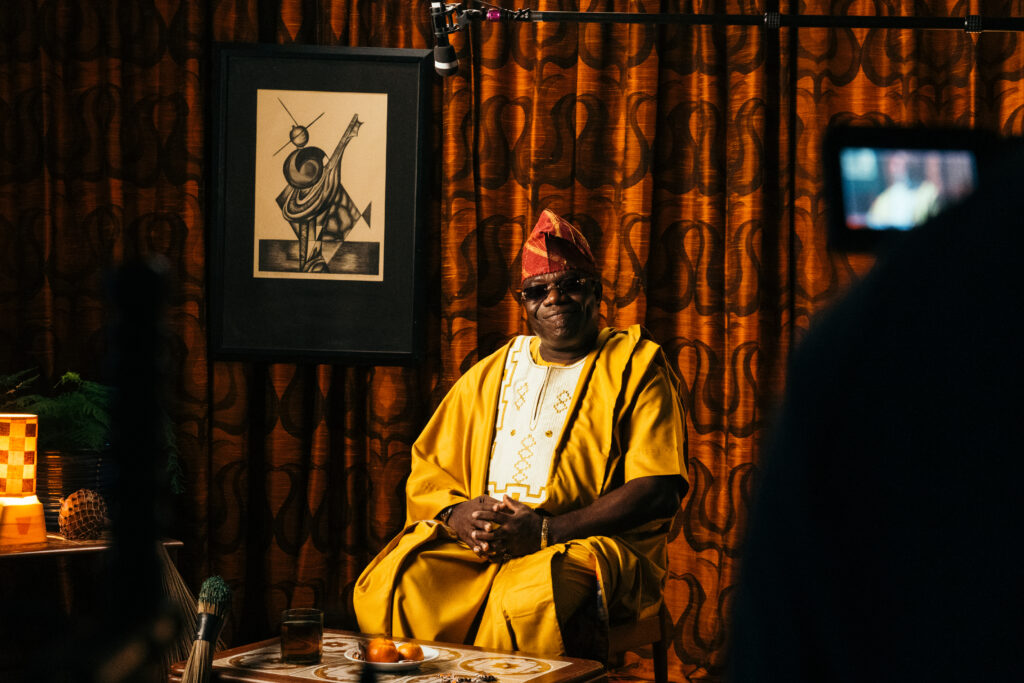
Clips show grainy videos of aunties with matching geles dancing to the inescapable echo of the talking drum while being sprayed with dollars- money, as Tobi recalls, that would be collected and never seen again. “One of the things I remember the most about these parties was meeting the other kids and just running wild, trying Super malt, dancing in the middle for money. But also, just watching the elders; we would sometimes sneak down the stairs and try to watch what they were doing, cause this was their space to free up themselves”.
That element of freedom that owambe provides was essential for the older generation, dealing with being outsiders in a predominantly white society: “Being able to play their music, speak in their languages, dress how they did back at home, they were able to be completely themselves without having to compartmentalise”, Tobi explains.
And even though the British born-Nigerian experience is miles away from the struggles of parents who migrated, ‘ÓWÀMBÈ’ is evidence that the sense of community remains a key fixture of the culture, especially in a time when the older generation is slowing down. The film features events like the No Signal 2020 Nigerian Independence Day clash, and Faaji Sundays, a space that serves as the rebirth of a tradition, dedicated to the younger generation who want to stay connected to the party culture their parents cultivated in moving to the UK.
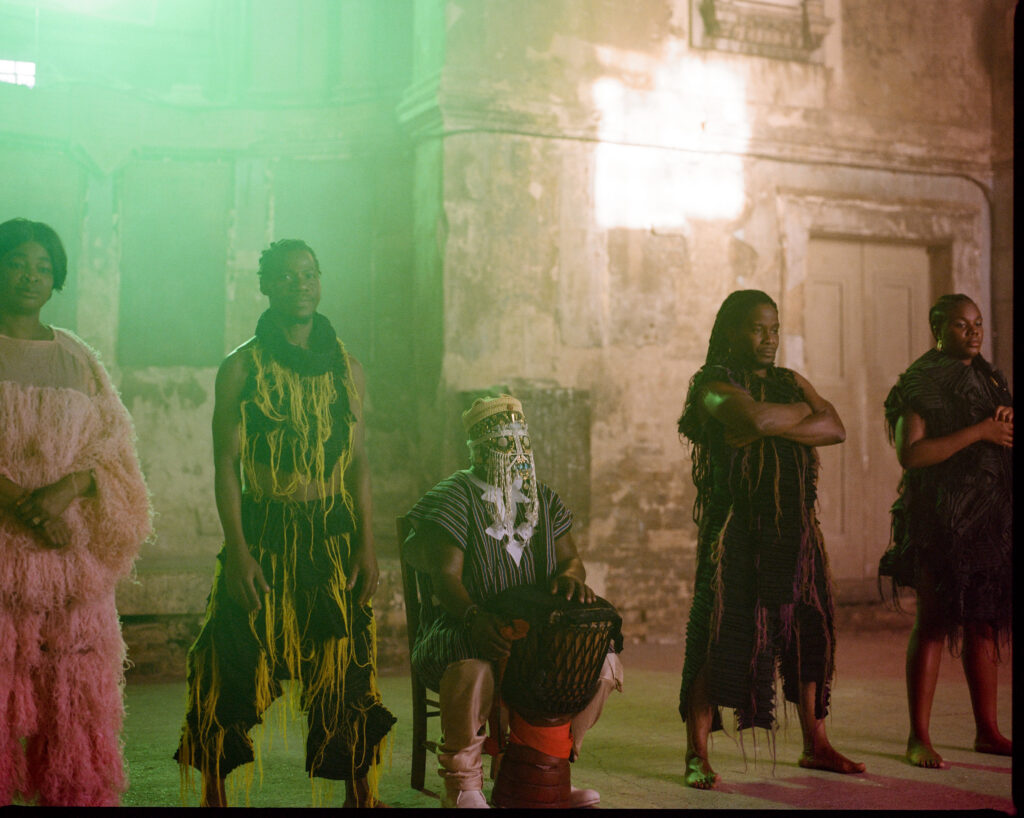
“We’re not facing the same things our parents did, so the reasons why people throw these parties might be different, but they’re still there”, Tobi says. “I feel like many people born in this country are going through a journey with their identity and are looking at how to maintain aspects of their culture and pass it along as a community. People are learning their native languages, throwing hall parties for their birthdays- we’re still bringing that element together, which is great to see”.
Underneath the cloud of spectacle, the film reminds us that, before anything else, the hall party is a sacred space. One for community, acceptance and outsiders looking for belonging, owambe is an assurance that Nigerian history won’t die but thrive in the hands of each generation.
You can watch the film/s via a Netflix TikTok Live taking place at 7pm on Friday (Just follow Netflix on TikTok to watch – here). The films will then drop on Netflix’s YouTube Channel Still Watching on Sunday 2pm.
Check out the GUAP Arts & Culture section, to discover new art, film, and creative individuals.




![ZINO VINCI’S ‘FILTHY & DISGUSTING’EP BRINGS YOU TO THE CORE OF THE ARTIST [@ZinoVinci]](https://guap.co/wp-content/uploads/2023/10/Zino-4.jpg)

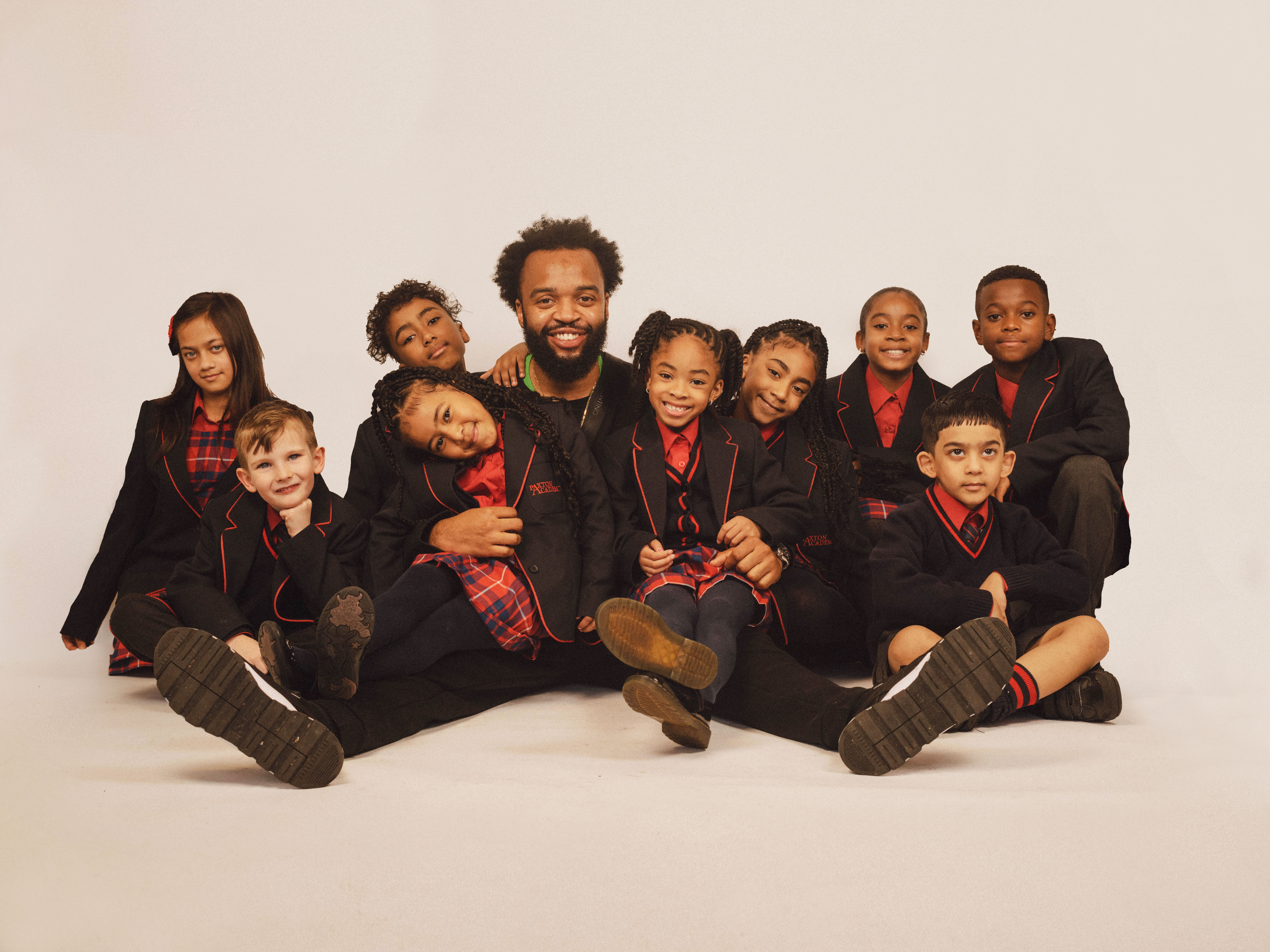
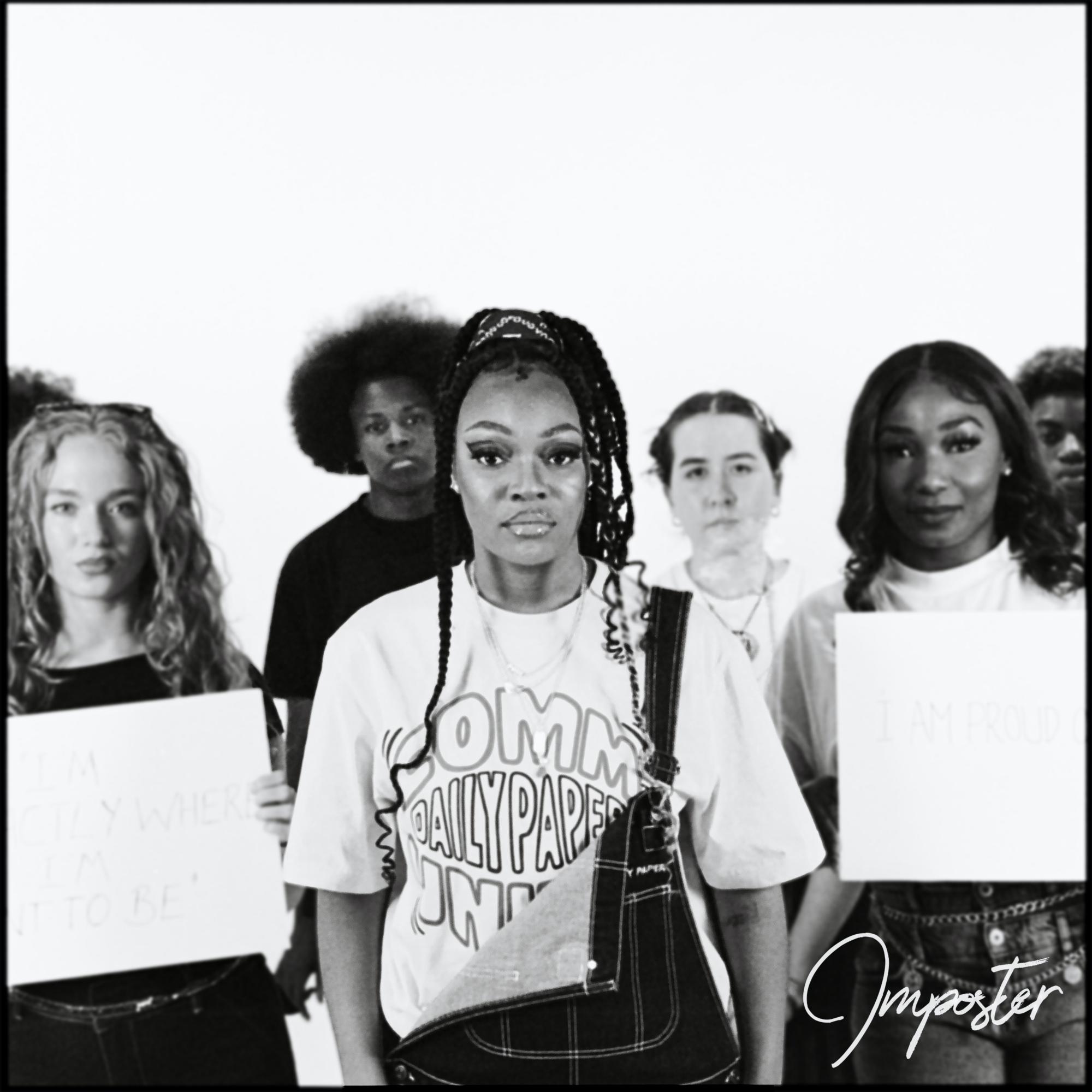


![Remel London’s [@Remel_London] “Mainstream” is a must attend for upcoming presenters!](https://guap.co/wp-content/uploads/2017/02/REMEL-LONDON-FLYER-FINAL-YELLOW-COMPLETE-1.png)